We Level Up Medical Detox. Finding Medical Detox Near Me. FDA-Approved Alcohol Detox Medications. Medical Alcohol Detox Process. Drugs and Prescription Medication Detox Programs.
Medical detox is a supervised process involving medications and medical support to help individuals safely withdraw from substances like drugs or alcohol. It aims to manage withdrawal symptoms, ensuring a safer and more comfortable transition to sobriety. Continue to read more about medical detox symptoms and programs for a safer and comfortable recovery from addiction and substance use disorders.
What is Medical Detox?
Detox is the process by which the body and brain adjust while abstaining from alcohol and addictive substances. Medically-assisted detox in an inpatient rehab can often lessen the uncomfortable symptoms of alcohol or drug detox. Detox withdrawal requires a lot of discipline and usually brings symptoms and even withdrawal pains.
The detox withdrawal symptoms are the brain’s response to being without the addictive substance. The brain becomes accustomed to constantly supplying substances through the bloodstream. Alcohol and drug detox treatment, if not appropriately conducted with the help of a professional detox center, can result in life-threatening withdrawal symptoms.
Are you searching for an evidence-based medical detox? Connect with We Level Up, a trusted medical detox and substance abuse treatment resource. Call 24/7 for confidential support from addiction professionals who understand your situation and are dedicated to helping you on your journey to recovery.
Featured We Level Up Medical Detox Centers
Overcoming substance use disorders and withdrawal symptoms can be challenging and lonely. Many people struggle to quit independently and often relapse to alleviate their symptoms or satisfy their cravings.
However, with We Level Up’s therapy and a robust support system, you can experience a more manageable withdrawal and successful recovery. If you require assistance with rehab, don’t hesitate to contact a treatment advocate 24/7.

We Level Up New Jersey
Drug & Alcohol Addiction Treatment Center w/Detox
Licensed & Accredited w/ 5-star reviews.- Inpatient addiction rehab center w/medical detox
- Addiction treatment and detox for alcohol, benzo, heroin, opioid, and more.
- Secondary mental health treatment available as part of our dual diagnosis programs.

We Level Up Washington
Premier Behavioral Health Treatment Center
Licensed & Accredited w/ 5-star reviews.- Inpatient mental health treatment center
- Therapy for depression, anxiety, trauma, bipolar disorder, PTSD, and more.
- Dual diagnosis rehab programs available

We Level Up California
Drug & Alcohol Addiction Treatment Center w/Detox
Licensed & Accredited w/ 5-star reviews.- Inpatient addiction rehab center w/medical detox
- Addiction treatment and detox for alcohol, benzo, heroin, opioid, and more.
- Secondary mental health treatment available as part of our dual diagnosis programs.
Are you searching for a medically assisted detox near me? View more We Level Up treatment centers.
Substance Use Disorders Requiring Medical Detox
For most people who seek residential or inpatient alcohol and drug treatment, medical detox is the priority, and detox happens at the beginning of treatment. While detox may not be considered addiction treatment, those who complete medical detox are more likely to stay in treatment longer and have long stretches of sobriety.
Below are the most common substances that require medically assisted detox:
Alcohol Detox
Alcohol Medically Assisted Detox
Alcohol detox should not be taken lightly because the withdrawal may involve a lоt оf аgоnу аnd раіn. For instance, if detox is done without medical detox supervision, the untrеаtеd аnd unmanaged ѕуmрtоmѕ саn bе lіfе-thrеаtеnіng. The treatment process should not be hurried as each person’s symptoms subside at their own rate because other complications may arise that need to be addressed. Generally, inpatient comfortable alcohol detox ranges from 3-7 days before transition into the next level of care.
Benzo Medical Detox
Benzodiazepine Detox Treatment
Benzodiazepine, or benzo, is a medication known as a tranquilizer. Unfortunately, benzodiazepine abuse is more common than you may think. Abusing these drugs can negatively impact relationships, careers, and physical and emotional health if left untreated. Heavy users of these drugs are more likely to end up in dangerous situations that put them at risk of being robbed, date raped, and worse.
Sadly, benzodiazepines severely impact short-term memory, and users often cannot recall the details of the period of use. Moreover, the most significant danger of using benzodiazepines and a reason to get into a benzodiazepine detox program is overdosing. If you or your loved one is abusing benzodiazepines, you should remember that they are very addictive.
Medical Detox From Opiates
Opioid Withdrawal Detox Treatment
Opioid withdrawal symptoms are potentially life-threatening and manifest as a result of opioid dependence. Opioids or opiates act in the nervous system and are prescribed to relieve pain.
Opioid withdrawal occurs when a person dependent on opioids suddenly reduces or stops taking the drugs. Trying to quit opioids “cold turkey” is difficult and dangerous to do on your own. For safety, it is best to seek the help of medically assisted opiate detox staff to overcome withdrawal symptoms safely and effectively.
Heroin Detox
Heroin Detox Treatment
Heroin is an illegal and highly addictive drug processed from morphine, a natural substance extracted from the seed pod of poppy plants. Heroin addiction is hazardous because of its highly addictive quality and the fact that it carries a high risk of overdosing. Moreover, most heroin users will have difficulty escaping from the grips of these drugs, but it is possible, and there is hope. The best chance at recovery is through a heroin detox in a safe and trusted treatment facility.
Methamphetamine Detox
Methamphetamine Detox Treatment
Methamphetamine is a street drug commonly known by the short form name “meth.” It is a highly addictive stimulant that affects the brain and can cause considerable health problems, resulting in potential death. Meth can cause addiction and overdose in some users as little as one use.
The first step in confronting meth addiction is detox. Methamphetamine detox might not be easy, but the benefits of overcoming meth addiction far outweigh the adverse side effects of detox. Recovery is hard. Regret is harder.
Cocaine Detox
Cocaine Detox Program
Embarking on a cocaine detox program is crucial to breaking free from addiction. Our program offers a comprehensive and medically supervised approach, utilizing evidence-based strategies to manage withdrawal symptoms and provide the support needed for successful detoxification. Contact us 24/7 for confidential assistance and take the first step towards a healthier, cocaine-free life.
Prescription Medication Detox
Prescription Drug Detox Treatment
Prescription drugs, mainly painkillers and benzodiazepines, are frequently misused in the United States. Identifying early signs of addiction to prescription drugs can be challenging as daily routines may remain seemingly unchanged. Not dismissing warnings when they eventually manifest is crucial, and recognizing them is vital for individuals and their loved ones. To understand this form of substance abuse, consider reading the article on prescription drug detox.
Ativan Detox
Ativan Detox Treatment
Ativan (Lorazepam) is a drug that calms the central nervous system to soothe anxiety. It is classified as a benzodiazepine. Despite its legitimate medical uses, Ativan has known addictive and dependence liabilities. If the anxiety and stress are gone, and the person continues to take Ativan, the person may be abusing it for the euphoric feelings it brings. The first step towards recovery is through Ativan detox. It might not be easy, but the benefits of overcoming Ativan addiction far outweigh the adverse side effects of detox.
Klonopin Detox
Klonopin Detox Treatment
Klonopin (clonazepam) It is an anticonvulsant or antiepileptic type of drug. It helps prevent and control seizures and panic attacks. Taking Klonopin can be addictive. Also, users may become physically and psychologically dependent on the drug.
Therefore, a person should not attempt to quit cold turkey alone due to the dangerous side effects or withdrawal. Klonopin detox cold turkey can be potentially fatal and requires medical treatment and supervision.
Xanax Detox
Xanax Detox Treatment
Xanax (alprazolam) is a prescribed medication for anxiety and panic disorders. It is the most frequently prescribed benzodiazepine. Also, it is the most widely prescribed psychotropic medication in the United States. However, Xanax can lead to physical dependence and addiction.
The sudden onset of Xanax withdrawal can cause uncomfortable and sometimes dangerous side effects, such as seizures, psychosis, and heart palpitations. Moreover, withdrawing from Xanax under the care of medical professionals in a rehab facility specializing in Xanax detox reduces the risk of complications. It helps the client experience a safer, more comfortable recovery.
GHB Detox
GHB Detox Treatment
Gamma Hydroxybutyrate (GHB) is another name for the generic drug Sodium oxybate. It is used to treat two symptoms of narcolepsy, such as sudden muscle weakness and excessive daytime sleepiness. GHB can have an addictive potential if used repeatedly. When a person stops taking these drugs, they may experience withdrawal symptoms, especially if their body has become physically dependent on the drug.
Recovery professionals recommend beginning the first phase of treatment in a supervised facility. This will all start by undergoing medically assisted GHB detox. Start your recovery by learning more about this substance and how you can jumpstart treatment.
Demerol Detox
Demerol Detox Treatment
Demerol is the brand name of meperidine. It is a prescription medication most commonly used to treat moderate to severe pain. Demerol addiction can occur at prescribed dosages. More so when the drug is misused or abused. This means that a person relies on the drug to prevent withdrawal symptoms.
Demerol abuse is dangerous, as it increases the risk of overdose. In addition, taking large amounts of the drug can depress and halt respiratory function, which can be fatal. Taking drugs more often than needed or in higher doses than prescribed may lead to addiction, requiring Demerol detox.
Tramadol Detox
Tramadol Detox Treatment
Tramadol is the generic form of Ultram, a prescription opioid painkiller to relieve moderate to moderately severe pain. It’s often helpful for pain after surgery. Moreover, this narcotic-like pain reliever is addictive. Therefore, even well-intentioned users are more likely to become dependent on the drug.
Serotonin syndrome, one of the many symptoms of Tramadol abuse, can be life-threatening if left untreated. It happens when too much serotonin, a chemical that relays signals in the brain, is produced or remains in the brain. It can potentially be abused and dangerous in large doses, requiring Tramadol detox treatment.
Methadone Detox
Methadone Detox Treatment
Methadone is a prescription drug that helps treat severe pain. It is also a medication for detox and maintenance treatment of opioid addiction, such as heroin. Methadone is itself an opioid and can be addictive.
Some people can become addicted to methadone by using it to wean themselves off another prescription painkiller. Abuse of methadone poses a risk of overdose and death. Methadone detox and addiction treatment programs can help ensure a safe withdrawal process. Reclaim your life; read through the article Methadone detox.
Soma Detox
Soma Detox Treatment
Soma (carisoprodol) is a prescription drug for pain such as muscle injuries, extreme joint aches, and bone conditions. It works by helping to relax the muscles. However, some people become addicted to Soma and use it other than how it is intended. Many Soma overdoses have occurred by abusing it with other drugs or alcohol.
Moreover, the effects of an overdose of Soma and other depressants (alcohol, benzodiazepines, opioids, and tricyclic antidepressants) can be addictive. In addition, Soma’s fatal accidental and non-accidental overdoses have been reported alone or in combination with CNS depressants. Soma detox is the primary treatment for people suffering from addiction to this drug.
Hydrocodone Detox
Hydrocodone Detox Treatment
Hydrocodone is the primary active ingredient of many prescription painkillers. Several brand names include Vicodin, Norco, and Zohydro. These drugs expose users to risks of hydrocodone addiction, abuse, and misuse, leading to overdose and death.
Although withdrawal symptoms can be uncomfortable, this is the body’s way of detoxing itself from the substance. Also, withdrawal and dependence on these drugs are manageable with a Hydrocodone detox program in a treatment facility. Stop your suffering from hydrocodone withdrawal symptoms and learn more about hydrocodone abuse.
Lunesta Detox
Lunesta Detox Treatment
Lunesta is the brand name for the generic drug eszopiclone. It is a sedative and part of the non-benzodiazepine drug class. However, because of its high potential for addiction, abuse, and dangerous interactions with other substances and medications, doctors only prescribe Lunesta as a short-term treatment method for insomnia.
Suppose you have misused this drug in high doses for an extended period. In that case, the user will likely experience withdrawal symptoms if they discontinue use, especially if they do so abruptly. Also, people frequently abuse Lunesta with alcohol and opioid drugs, increasing the risk of dependence and overdose.
Restoril Detox
Restoril Detox Treatment
Restoril is a brand name for the generic drug temazepam. It is a prescription medication for treating insomnia. However, because it acts as a central nervous system (CNS) depressant, there is a high tendency for users to build a tolerance to the drug and become dependent. Dependency means a physical or mental craving for Restoril and an inability to sleep or relax without it. Common during Restoril withdrawal are rebound symptoms.
This means that someone experiencing withdrawal from this drug will likely have more severe insomnia than before using the medication. Seizures can occur during withdrawal as well. If untreated, seizures can be fatal. Safely detox and learn more about Restoril detox.
Dilaudid Detox
Dilaudid Detox Treatment
Dilaudid is the brand name of the generic drug hydromorphone. It is a Schedule II narcotic prescription painkiller for treating moderate to severe pain. Moreover, these drugs can cause physical dependence, leading to addiction.
Using Dilaudid for any period can be habit-forming and dangerous, especially if you take it with other drugs or alcohol. Serious abuse complications include stroke, convulsions, heart attack, coma, and death. Dilaudid detox from a trusted treatment facility can prevent these outcomes and provide immediate care if complications arise. Avoid suffering from its harmful effects.
Buprenorphine Detox
Buprenorphine Detox Treatment
Buprenorphine is a partial opioid agonist used to manage severe pain that is not responsive to alternative treatments. It is used primarily to maintain opioid addiction, such as heroin and narcotic painkillers. However, buprenorphine-based drugs have become addiction threats by themselves.
It can cause severe respiratory depression (slow or shallow breathing) if taken with other depressant drugs like alcohol or benzodiazepines, such as Xanax, Ativan, Valium, and Klonopin. Buprenorphine detox from a reliable treatment facility can prevent these outcomes and provide immediate care if complications arise. Learn more about your treatment options.
Zoloft Detox
Zoloft Detox Treatment
Zoloft is the brand name of the prescription drug sertraline. This drug treats major depressive disorder, obsessive-compulsive disorder, panic disorder, post-traumatic stress disorder, social anxiety disorder, and premenstrual dysphoric disorder. Zoloft has long been associated with withdrawal symptoms when the use of the drugs is stopped or diminished abruptly. Recovery professionals recommend facing Zoloft addiction with a long-term treatment plan that promotes positive decision-making and improvements to overall health, including learning coping skills. This will all start by undergoing medically assisted Zoloft detox.
Medical or medically-assisted detox is a crucial first step in recovery from drug or alcohol use disorder. Since alcohol withdrawal is life-threatening when severe, medical alcohol detox is necessary. Medical drug detox is imperative for all individuals with a psychological and physical dependence on a substance.
How To Detox From Medications?
Medical detox refers to freeing the body of toxic, addictive substances under the care of a team of licensed medical professionals. A physician often heads this team comprising clinical staff, nurses, and therapists. Some facilities utilize advanced practice staff like nurse practitioners or physician assistants to deliver medical supervision during detox.
Like asthma, diabetes, or rheumatoid arthritis, substance use disorder, commonly known as addiction, is a chronic disease that flares up occasionally but can be managed. Medical detox is similar to a hospital emergency department addiction in driving long-term medical conditions. Like an ER visit for an asthma attack, medical detox for alcohol or drug addiction stabilizes an acute flare-up of a chronic illness.
Are you or a loved one suffering from drug or alcohol addiction? Or have you become so dependent that you can’t stop using or drinking? Then, your very first step in recovery should be to medical detox in a safe and medically supervised setting. We Level Up detox centers medically assist patients in clearing their systems of addictive substances.
What To Expect During Medical Detox?
The detox process can start soon after you check in for your addiction treatment program. You will receive a standard examination from a medical professional who will take your vitals and review your health history. Depending on the severity of the addiction and the kind of drug abuse, your body will naturally begin to show withdrawal symptoms within several hours (though again, the exact amount of time will vary from patient to patient and depends on the addiction).
The clinical staff helps tailor medical detox care to each person’s needs during medical detox. To ensure that these needs are met, clients undergo comprehensive evaluations, where clinicians screen for:
- Drug and alcohol use disorders.
- Co-occurring disorders.
- Medical conditions.
- Contributing psychological factors.
- Risk for withdrawal.
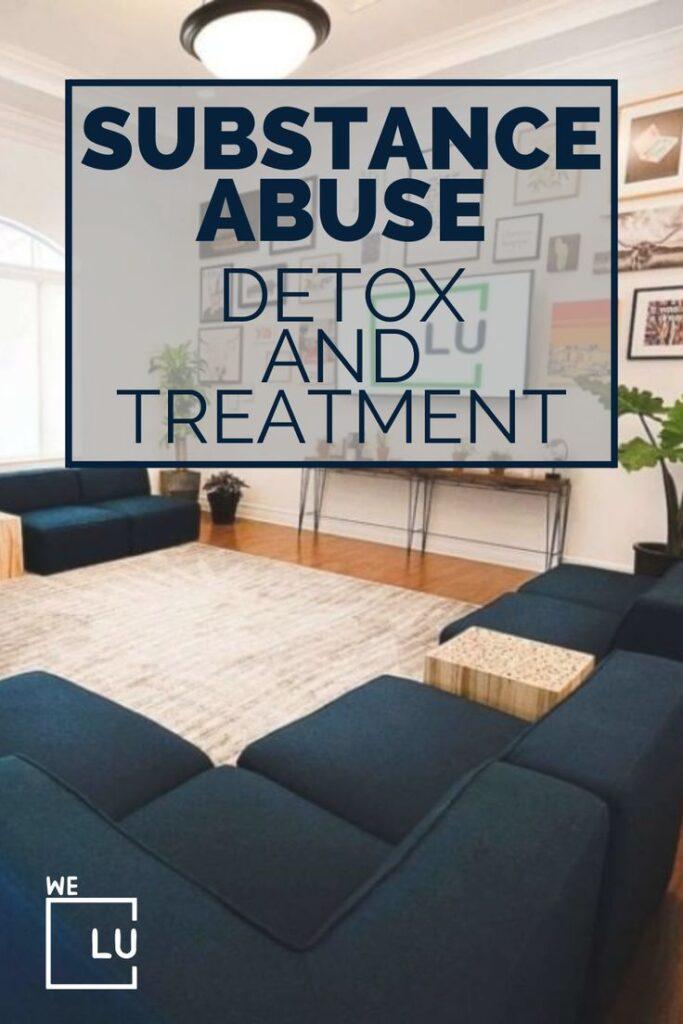
Skip To:
Learn More:
- Discover Top-Rated Drug & Alcohol Medical Detox Near Me, Licensed Accredited Programs. Find a Top-Rated Medical Detox Facility Near Me
- Inpatient Rehab Guide. What Is Inpatient Rehab? How To Find Inpatient Rehabs Near Me? Understand Inpatient Drug Rehab, Inpatient Alcohol Rehab, and Inpatient Mental Health Rehab.
- Alcohol Detox Timeline and How To Safely Manage Alcohol Withdrawal Symptoms Treatment and Finding Medical Detox for Alcohol Near Me
- Comfortable Drug and Alcohol Detox, First Step To Sobriety
- Marijuana Detox, How To Detox From Weed? Is Detoxing From Weed Safe?
- Suboxone Withdrawal Symptoms, Timeline, and Detox
- Medication Assisted Treatment. Medication Assisted Treatment for Opioid Use Disorder, MAT Program for Alcohol, FAQs and Facts.
- Medication Assisted Treatment for Alcohol
- AWS or Alcohol Withdrawal Timeline Symptoms, Seizures, Signs and Alcohol Withdrawal Detox Treatment
Get addiction counseling that works. Discover professional help from We Level Up’s addiction and mental health therapists. Start getting support with a free call to our addiction hotline.
Get Help. Get Better. Get Your Life Back.
Searching for Accredited Drug and Alcohol Rehab Centers Near You?
Even if you have failed previously and relapsed, or are in the middle of a difficult crisis, we stand ready to support you. Our trusted behavioral health specialists will not give up on you. When you feel ready or just want someone to speak to about therapy alternatives to change your life call us. Even if we cannot assist you, we will lead you to wherever you can get support. There is no obligation. Call our hotline today.
(844) 597-1011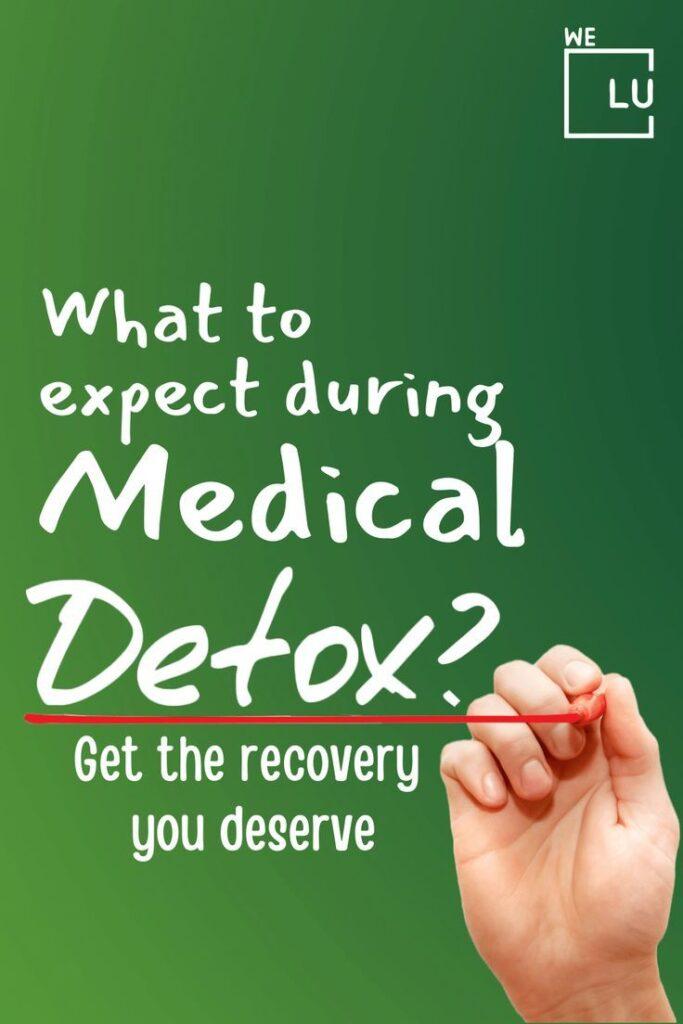
How Long Does Medical Detox Last?
The duration of medical detox varies based on the specific substance and individual factors. Here is a general guideline for the average duration of medical detox for some common drugs:
| Substance | Average Medical Detox Duration |
|---|---|
| Alcohol | 5-7 days |
| Opioids (e.g., heroin, prescription painkillers) | 5-10 days |
| Benzodiazepines | 2-4 weeks |
| Stimulants (e.g., cocaine, methamphetamine) | 1-2 weeks |
| Marijuana | Typically not needed |
Alcohol Detox Timeline Summary
The most unbearable detox withdrawal pains and related symptoms can usually arrive about 10 to 30 hours after the last drink or use. But, typically, these adverse effects can begin to decrease about 40 to 50 hours into the second day of detox. While delirium tremens are less likely, about 30 percent of people suffer. These patients can also get ill with Aspiration Pneumonia. A medically-assisted withdrawal treatment helps prevent serious complications, keeps track of a patient’s health condition, and relieves painful effects.
Alcohol Detox Timeline
Detox-related discomfort and harmful withdrawals usually start at least two hours after your last use or drink of alcohol. The stronger, painful detox effects typically fall off within the first week. Some mild symptoms can last several weeks and up to a full year. There is no exact timeline for when or what withdrawal symptoms you will experience; however, there’s a general outline of what to expect.
What does the alcohol detox process look like?
- First six to 12 hours: The initial symptoms of alcohol detox are generally milder but may escalate fast and deteriorate over time. Beginning withdrawal pain, discomfort, and negative symptoms usually comprise headaches, anxiety, shaking, nausea, and irritability.
- Day one: When one advances to the conclusion of the first 24 hours of detox, symptoms, and related withdrawal pains can increase in severity, along with the symptoms that begin in the first 12 hours. Incremental adverse effects can include patient disorientation, hand tremors, and seizures.
- Day two: Similar to the first full day of detox, the most painful symptoms will continue into the second day. Hallucinations and panic attacks are common during this time as your body rids alcohol from its system.
- Days three to seven: For the remainder of your initial week in detox, differing withdrawal signs can start and end. This is also the phase of detox where one is at the most significant risk for harsh detox effects, including delirium tremens.
- After one week: By the time you’ve completed your first week of detox, many of the withdrawal signs will begin to taper off. Most symptoms can be minor and treated with medication, but some may persist for a few weeks.
PAWS (Post Acute Withdrawal Syndrome)
While the most hazardous withdrawal symptoms diminish, some can experience post-acute withdrawal syndrome. It is known as PAWS. A condition with extended continued signs and suffering from detox. Generally, these withdrawal symptoms can usually consist of anxiety, lack of energy, difficulties falling asleep, and slow reflexes. The effects of PAWS can last from several months to a year.
Alcohol Withdrawal Timeline Infographic
Embed the below “Alcohol Withdrawal Timeline” Infographic to your website. This infographic is provided with compliments of the We Level Up addiction treatment center team. Using this infographic, you agree to link back and attribute its source and owner at https://welevelup.com/medical-detox/
Alcohol Withdrawal Timeline infographic image link: https://welevelup.com/wp-content/uploads/2023/03/Stages-Of-Alcohol-Withdrawal-Timeline-2-1030×1030-1-1024×1024.png
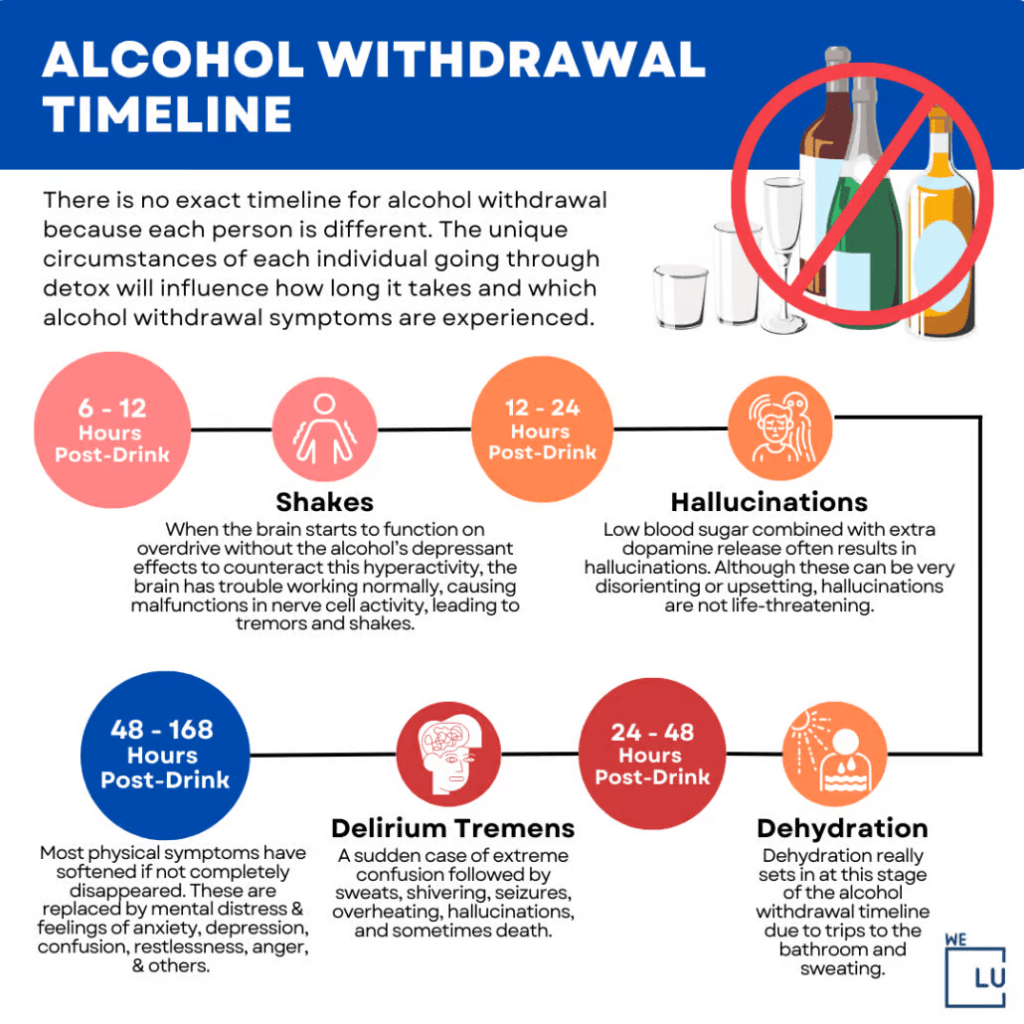
Is Medical Detox Safe?
Yes, medically assisted detox programs are safer than dealing with withdrawals alone. It is challenging and sometimes dangerous for you to quit alone. Withdrawal symptoms are often severe and, in extreme cases, fatal. Going to a drug rehab eases your recovery process and helps to reverse the harm caused by addiction. Some of the benefits of medical detox in an inpatient treatment setting include:
- Medically-assisted detox: Treatment is monitored and designed by a team of medical professionals on-site 24/7 to ensure you receive the proper support.
- Therapeutic environment: The inpatient rehab center provides a safe, peaceful, and nurturing environment that helps recovery.
- Improved treatment outcome: Inpatient drug rehabs have a higher success rate than home detox, community treatment, or outpatient treatment.
- Access to experienced addiction specialists: Inpatient drug rehab staff has some of the best specialists to deliver an evidence-based program.
- A more comprehensive range of therapies to overcome the root cause of addiction: Inpatient drug rehabs include as many therapies as possible to ensure the complete and holistic treatment to address the underlying co-occurring psychiatric condition that often causes or results from your addiction.
Cost of Medical Detox
The cost of a medical detox will vary widely depending on the level of treatment required and which medications you’ll need throughout your stay. The longer you stay at the facility, the more expensive your visit will be. While some individuals may have the money to afford luxury detox programs that offer additional amenities, others would instead stick with bare-bones care.
No matter what you need for alcohol or drug abuse treatment or how serious your monetary problems have become, though, do not ever feel that you are not entitled to treatment. Also, medical detox and addiction treatments are medical programs and a form of healthcare. For this reason, it is crucial to refrain from choosing the cheapest option simply because it is inexpensive and instead look for the best choice for your needs that will fit your budget.
Use your insurance plan. Most private insurance plans also offer at least partial—if not complete—coverage for this type of care. Many insurance plans will cover detox because it is the first step in one’s treatment for substance abuse. However, you must remember to seek rehab after your withdrawal period.
Depending on your insurance coverage, you can offset a significant portion of the costs. It’s recommended to call your health insurance provider to get an estimate for how much of the medical detox they’ll pay for. We understand that going through your insurance policy can be challenging, time-consuming, and frustrating.
Fortunately, you don’t have to do it alone. At We Level Up, our admissions staff works with many private insurance customers during the admissions process.
Learn more about your coverage by filling up the free rehab insurance check online below:
Who Needs Help From a Medical Detox Center?
Detox can occur cold turkey, which is to cease all abused substances use at once. Alternatively, detox can occur in moderation. This is where your professional medical detoxification team slowly weans you off the addictive substances.
Anyone who engages in heavy alcohol drinking and substance use disorder and has a physical addiction is a candidate for medical detox. With that said, certain substance use disorders may benefit more than others.
If you believe that you or a loved one have a problem with drug or alcohol use, a medical detox program can help secure a healthier future. The medical detox program provides a foundation for building new and healthy habits. Learning about the characteristics of detoxification programs allows you to find the program that best fits your needs.
Luxury Medical Detox
Detoxification is never a painless process. Even luxury medical detox programs for substance use disorder aren’t always perfectly smooth — but they are effective. However, our executive rehab center wants clients to have the most comfortable and efficient medical detox possible for their recovery.
Our luxury medical detox and executive rehab for addiction are designed to guide clients safely and successfully through this crucial first stage of treatment. Many clients who have undergone this process have completed their addiction treatment mainly due to the comfort and safety offered at our facility during the medical detox process.

Inpatient Medical Detox
Inpatient detox centers are residential centers. You detox while you stay at the facility. They take care of your food and shelter while you detox from the substance that you are on. This is one of the most common types of detox. Usually, inpatient detox does not only offer detox services but counseling and therapy as well. This is considered one of the more effective forms of detox due to the intensity of the treatment and the follow-up care.
Withdrawal Management
To start your medical detox, you must first go through an evaluation. This step is critical in starting your journey toward recovery. During this step, a medical practitioner will evaluate your drug and alcohol usage and your symptoms of withdrawal to determine the proper amphetamine detox treatment plan.
After the evaluation is detoxification, this stage starts as soon as you stop abusing alcohol or drugs. Your body starts to work hard to cleanse itself of the substance. Several medical detox programs are available, and finding one that’s right for you is crucial. The staff at the detox facility should be available to help you through the ups and downs of the medical detox process and to make it as comfortable as possible.
The process does not end once the medical detox process is complete. Continuing with aftercare is crucial to your success. While your body may be physically rid of the drug, your mind is still recovering. During this time, it is essential to learn and embrace vital sober living tools that will help you resist the temptations of substance usage.
EVEN IF YOU’RE NOT ADMITTED FOR TREATMENT WITH US, YOUR ASSESSMENT CAN GUIDE THE NEXT STEPS IN YOUR CARE.
Medically Assisted Detox Fact Sheet
Medical Assisted Detox
According to the Substance Abuse and Mental Health Service Administration (SAMHSA), detoxification is an overall process with three essential components that may take place concurrently or as a series of steps:
1. Evaluation for Medical Detox
Evaluation entails testing for the presence of substances of abuse in the bloodstream, measuring their concentration, and screening for co-occurring mental and physical conditions. The assessment also incorporates a comprehensive evaluation of the client’s medical and psychological needs and social situation to help determine the appropriate level of treatment following detoxification. The evaluation is the basis for the initial substance abuse treatment plan once the client has withdrawn.
2. Stabilization During Medical Detox
It covers the medical and psychosocial processes of assisting the client through acute intoxication and withdrawal to accomplish a medically stable, fully supported substance free state. This is often done with the assistance of medications, though no prescription is used in some approaches to detoxification. Stabilization includes familiarizing clients with what to expect in the treatment levels of care and their role in treatment and recovery. During this time, practitioners also seek the client’s family, employers, and other significant people when appropriate and with confidentiality.
3. Fostering A Client’s Entry Into Treatment
Promoting the client’s entry into treatment involves preparing the client for entry into substance abuse treatment by stressing the importance of following through with the complete substance abuse treatment continuum of care.
All three components (evaluation, stabilization, and fostering a patient’s entry into treatment) involve treating the client with compassion and understanding. Clients undergoing detoxification need to know that someone cares about them, respects them as individuals, and has hope for their future. Furthermore, actions taken during detoxification will demonstrate to the client that the provider’s recommendations can be trusted and followed.
To emphasize, detoxification does not constitute substance abuse treatment but is part of a continuum of care for substance related disorders. Detoxification can occur in various settings and at several intensity levels. Therefore, placement should be appropriate to the client’s needs.

Get Your Life Back
Find Hope & Recovery. Get Safe Comfortable Detox, Addiction Rehab & Dual Diagnosis High-Quality Care.
Hotline(844) 597-1011Medical Detox Recovery Statistics
Medical detox is a vital and beneficial component of addiction treatment, providing a structured and supervised process to manage withdrawal symptoms safely. While it sets the foundation for recovery, successful treatment typically involves a comprehensive approach, including counseling, therapy, and ongoing support. Combining medical detox with these elements increases the likelihood of sustained recovery and addresses the broader aspects of addiction.
72.2%
A substantial 72.2% of those who have faced substance use issues identify themselves as being in recovery. This statistic highlights the resilience and commitment of individuals on their recovery journey, highlighting the positive impact of recovery-oriented approaches.
Source: NCBI
15 Million
Roughly 15 million individuals grapple with an alcohol use disorder in the United States, yet fewer than 10% seek and receive the treatment they need. This stark statistic emphasizes the imperative to enhance accessibility and awareness of effective interventions to support those facing alcohol-related challenges.
Source: NCBI
75%
Recent research indicates a 75% survival rate among individuals grappling with addiction who receive adequate treatment, paving the way for them to lead fulfilling and complete lives. Access to quality treatment is pivotal in empowering individuals to overcome addiction and journey towards sustained recovery.
Source: NCBI
Medical Detox Center Treatment Programs
Are you or a loved one suffering from drug or alcohol addiction? Or have you become so dependent that you can’t stop using? Then, your very first step in recovery should be to medical detox in a safe and medically supervised setting. We Level Up medical detox centers medically assist patients in clearing their systems of addictive substances. Detox can occur cold turkey, which is to cease all abused substances use at once.
Alternatively, detox can allow most people abusing addictive drugs to figure out they are hooked on their particular substance quickly. Becoming dependent on a drug means you can begin feeling withdrawal pains when you stop its use altogether. Moreover, this applies when even partially stopping your use, with withdrawal symptoms and their related symptoms also returning. Medical detox services are essential for anyone physically and psychologically dependent on one or more addictive substances.
Detox Withdrawal Pains
For anyone suffering from substance use disorders, just the thought of discontinuing using can cause severe mental distress. That’s because the associated withdrawal process is notorious for being both painful and slow to progress to recovery. A medical detox center can better manage your detoxification treatment process. A comprehensive team prescribing medications can alleviate withdrawal pains while monitoring your health 24 hours a day and assuring your safety and comfort.
Detox Withdrawal Discomfort Fears
Some people are apprehensive about quitting drinking because they fear withdrawal discomfort. And the feelings of severe sickness during alcohol detox. Some may experience more minor withdrawal effects. However, others can face extreme pain and even dangerous withdrawal symptoms with severe adverse medical effects. Withdrawal symptoms can change quickly and aggressively. Supervised medical detox under the care of addiction specialists can make your detox treatment recovery safer and more comfortable. Detox treatment professionals at a rehab facility can help you manage withdrawal pain. Using different detox medications for each type of addiction you’re experiencing will help wean off more safely and comfortably. They are allowing you to focus on your recovery and get better.
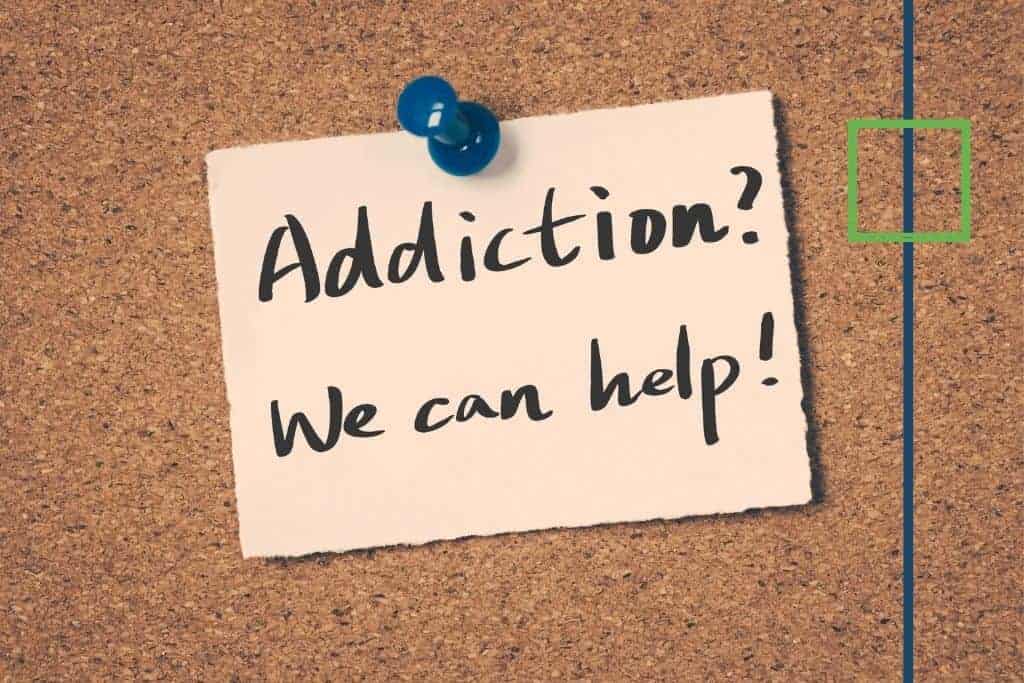
Dependence Symptoms
Users of addictive abused drugs can determine when they are hooked on a particular substance. When you depend on a drug, meaning where you stop its use entirely or even partially, you can begin feeling withdrawal pains and their related symptoms. Addiction medical detox services are essential for anyone physically and psychologically dependent on one or more abused addictive substances. The various symptoms caused by addictive substance withdrawal effects include:
- Muscle cramps.
- Mood swings.
- Irritability.
- Severe dehydration.
- Severe stress and anxiety.
- Depression.
- Sleep problems.
Improve Comfort and Quality of Life via Detox Center Treatment
You’ll be able to improve your comfort with medical substance abuse detox. While also improving your quality of life during the withdrawal phase while you detox. A well-trained team of specialists can help manage withdrawal symptoms while reducing detox stress. Your professional detoxification team can focus on your relief. They will help reduce your discomfort and suffering when coming off the drugs and alcohol that you abused. While in detox, your team can monitor and reduce your withdrawal symptoms as your body undergoes the process of eliminating alcohol and drug toxins out of your body.
Some Detox can be Dangerous.
There are numerous ways of detoxing from alcohol and drug abuse. But, some detox can be hazardous without supervised medically trained professionals. The way you choose to detox can become unsafe. It can even result in the difference between success and failure of coming off your addiction. That’s why successful and safe detoxification from alcohol and drugs is a critical first step. Medical detox is the start of a solid foundation for one’s rehabilitation and recovery journey.
Alcohol Detox Center Treatment Program
Alcohol is one of the most dangerous substances to detox from, along with other CNS (central nervous system) depressant drugs such as benzodiazepines, sedative-hypnotics (sleeping tablets, gabapentinoids, opiates, and opioids, and certain antidepressants and antipsychotics. Detoxing can be achieved in different ways; not all are safe nor clinically recommended (depending on the substance).
Medical Detox is the First Step in Addiction Treatment
For those suffering from Alcohol addiction, a detox is the first critical step in treating alcoholism. It is the first stage of treating alcohol addiction, where alcohol is completely flushed out from your body. Alcohol detox results in withdrawal symptoms that typically subside within approximately one to two weeks after starting a medical detox program. However, medical detoxification can take longer depending on your alcohol use disorder or AUD. Upon completion of detox, clients can focus on other recovery aspects, including different activities, therapy, counseling sessions, and peer support programs.
Drugs and Alcohol Detox Withdrawal Signs
Alcohol is a depressant that your body begins to rely on and becomes more accustomed to throughout long-range consumption of alcohol with months and even years of drinking. Alcohol abuse negatively impacts your brain. After a time, your body will discontinue making some chemicals that it receives directly from alcohol—becoming dependent on alcohol abuse. That’s why you’ll need time for your body to adjust and rebalance when you stop drinking. When quitting, you’ll experience withdrawal symptoms, including headaches, fever, nausea, irregular heartbeat, and hallucinations.
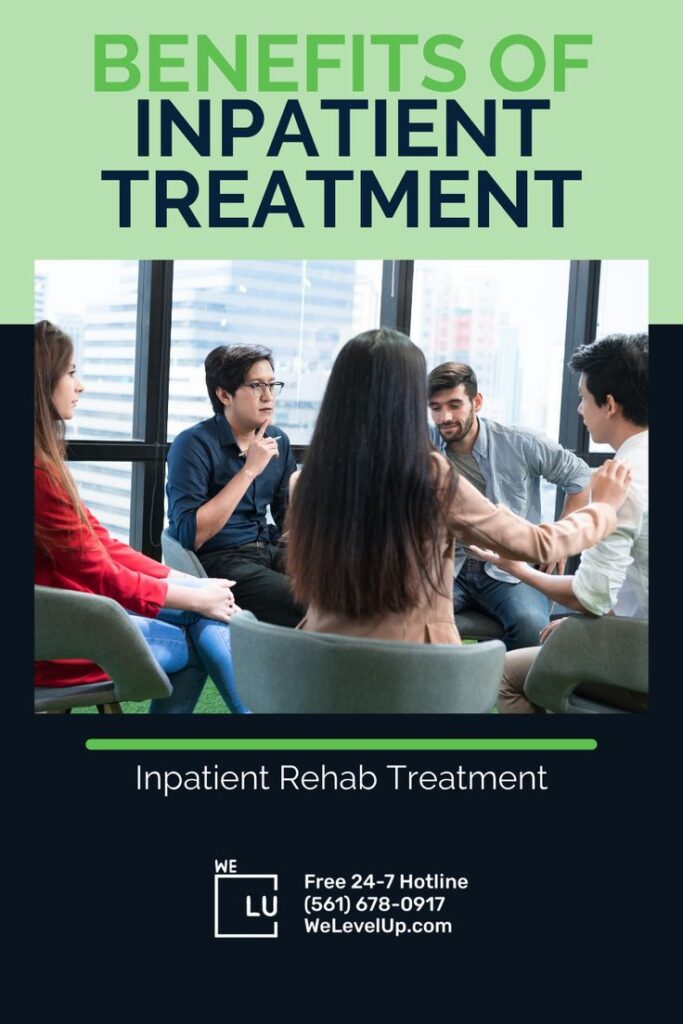
Symptoms of Alcohol Detox
The initial alcohol detoxification stage can involve withdrawal indications stretching from moderate strength to life-threatening. The length of time and the degree of heavy drinking exacerbated by your addiction often impact your withdrawal. Along with the level of withdrawal pains and discomfort you’ll undergo. For example, someone who has suffered from multiple years of intense drinking is more likely to grow into severe withdrawals. In these cases, warning signs like seizures or delirium tremens can result.
Minor symptoms of alcohol detox include:
- Anxiety.
- Sweating.
- Nausea.
- Insomnia.
- Headaches.
More serious negative alcohol detox withdrawal symptoms include:
- Tremors.
- Seizures.
- Extreme hallucinations.
- Disorientation.
- Delirium tremens (in rare cases).
Although uncommon, the most somber impact of alcohol withdrawals is delirium tremens. These can start within two to five days after your last drink and can be life-threatening.
But, less than 5% percent progress to dangerous delirium tremens when quitting drinking.
Due to the intensity of withdrawal dangers, alcohol detoxification should be monitored by medical professionals. This is especially true for those with a lung or heart disease history. Or other medical conditions, as withdrawal symptoms can quickly worsen. Detox treatment specialists can track your blood pressure and heart rate to ensure your situation doesn’t worsen. You can also talk with them about the symptoms you are experiencing. And get help if you are in any pain. This information helps your medical team determine which medicine will help alleviate your discomfort.
Find more medical alcohol detox near me.
First-class Facilities & Amenities
World-class High-Quality Addiction & Mental Health Rehabilitation Treatment
Rehab Centers TourRenowned Addiction Centers. Serene Private Facilities. Inpatient rehab programs vary.
Addiction Helpline(844) 597-1011Proven recovery success experience, backed by a Team w/ History of:
15+
Years of Unified Experience
100s
5-Star Reviews Across Our Centers
10K
Recovery Success Stories Across Our Network
- Low Patient to Therapist Ratio
- Onsite Medical Detox Center
- Comprehensive Dual-Diagnosis Treatment
- Complimentary Family & Alumni Programs
- Coaching, Recovery & Personal Development Events
Most Common FDA-Approved Medications for Alcohol Detox
Can I do a detox while on medication? For alcohol detoxification, inpatient rehab facilities can treat using multiple prescription medications to aid in diminishing patient discomfort. A detox medication for alcohol can also help keep a person’s body chemicals balanced, lowering the risk of severe complications. A medical professional will administer the medication for alcohol detox and monitor its effects in rehab. Substitute medications are generally introduced if the original prescription begins to cause adverse side effects or hinder the detoxification procedure.
Most Common Detox Medications For Patient Comfort and Safety
Benzodiazepines
During the alcohol medical detox phase, benzodiazepines (benzos) are most frequently used to treat withdrawal symptoms. These are applied to aid in calming down the central nervous system. It can also help in treating insomnia, anxiety, plus muscle spasms. Benzos prescription medication is formulated in two formats: short-term acting and long-term acting medication. Usually, long-term-acting benzos are prescribed for about three days or used when needed. Chlordiazepoxide (Librium) and diazepam (Valium) are benzos most frequently administrated in a residential inpatient rehab detox treatment.
Naltrexone
Naltrexone aids in diminished alcohol cravings during the medical detox stage. It is one of the best drug detox medications. When a patient falls back into using and relapses, naltrexone can combat the relapse by preventing one from feeling high from continued alcohol drinking. Naltrexone administration is a prescription-based medication that acts to relieve withdrawal symptoms. It’s recommended that patients delay its use for seven to 10 days before taking naltrexone. Naltrexone is available in two forms: as a tablet and as an injectable. The pill form of naltrexone is sold under the brand names ReVia and Depade. The injectable form of naltrexone is called Vivitrol.
Acamprosate
Hefty multi-year alcohol consumption will meaningfully change how one’s brain physically appears and functions. Acamprosate, labeled as Campral, is prescribed to assist the brain. It will aid the brain to start regularly operating again after you stop drinking. Research studies have also examined whether acamprosate helps reduce symptoms like PAWS, including insomnia, anxiety, and restlessness. It also works to reduce alcohol cravings. It will not produce an unwanted effect if alcohol is consumed.
Disulfiram
A different sort of prescribed medication applied in alcohol detox treatment is disulfiram. This medication differs from others in that disulfiram works via powerful adverse effects when consuming alcohol. For example, you’ll feel its adverse effects when drinking alcohol while taking disulfiram prescription medication. Like facial flushing, nausea, headaches, physical weakness, and lower blood pressure. Used to actively inhibit clients from enduring its adverse effects when drinking. Disulfiram is not intended to reduce your alcohol cravings or restore brain functions like some other drug detox medications.
Warnings About Medically Induced Coma for Detox
Entering a medically induced coma for detox should only be considered in extreme cases and under the close supervision of medical professionals. This approach is associated with significant risks, including sedation-related complications. It should be reserved for situations where other, less invasive detox methods have proven ineffective or pose a severe health risk. The decision to use a medically induced coma for detox should be thoroughly discussed with healthcare providers, considering the potential benefits and risks individually.
How To Detox Medication From Your Body?
Detoxing from medication should always be done under the guidance of a healthcare professional to ensure safety and effectiveness. The process typically involves gradually reducing the medication dosage under medical supervision, allowing the body to adjust to lower levels. This tapering minimizes withdrawal symptoms and potential complications, providing a safer and more comfortable transition. Always consult with a healthcare provider to create a personalized and appropriate plan for detoxing from medication.
Seize the Opportunity to Get Help Now
Getting medical detox help from alcohol and drug abuse can be a big step toward restoring your life, health, and sobriety. Your choice of how to detox or where to get treatment should include your safety and comfort. The We Level Up medical detox center can help you find the right therapy and addiction programs that fit your needs. Are you seeking a medical detox Orange County, medical detox San Diego, medical detox Washington State, or a medical detox Los Angeles? Call us today for a free consultation and we can help you explore treatment options.
Overcoming Drug and Alcohol Withdrawal. Find the Support You Need.
Withdrawal from alcohol and substance abuse is often a challenging process to go through alone. Many people experience relapses during withdrawal in an attempt to alleviate symptoms and satisfy cravings. However, you can manage withdrawal symptoms and successfully recover with detox and rehab therapy and a robust support system at the We Level Up treatment centers. If you require assistance with your rehab journey, contact a We Level Up treatment professional now. Your call is free and confidential.
Get a free rehab insurance check without any obligation.
World-class, Accredited, 5-Star Reviewed, Effective Addiction & Mental Health Programs. Complete Behavioral Health Inpatient Rehab, Detox plus Co-occuring Disorders Therapy.
CALL(844) 597-1011End the Addiction Pain. End the Emotional Rollercoaster. Get Your Life Back. Start Drug, Alcohol & Dual Diagnosis Mental Health Treatment Now. Get Free No-obligation Guidance by Substance Abuse Specialists Who Understand Addiction & Mental Health Recovery & Know How to Help.
Top 20 Most Common FAQs About Medical Detox Drugs and Alcohol Use Disorders Treatment
What is a medical detox?
Medical detox is a supervised process involving medications and medical support to help individuals safely withdraw from substances like drugs or alcohol. It aims to manage withdrawal symptoms, ensuring a safer and more comfortable transition to sobriety.
How does medically supervised detox work?
In medically supervised detox, individuals undergo withdrawal in a controlled environment under healthcare professionals’ guidance. Physicians often prescribe medications to alleviate withdrawal symptoms, and the process is closely monitored to address any complications and ensure a safe transition toward recovery.
What are the benefits of a medical detox program?
A medical detox program provides a structured and supervised environment, minimizing health risks associated with substance withdrawal and increasing the likelihood of a successful recovery. Additionally, using medications in such programs can alleviate withdrawal symptoms, making the process more comfortable and supporting individuals in their journey to sobriety.
Is medical detox safe?
Yes, medical detox is generally safe when conducted under the supervision of trained healthcare professionals. The presence of medical staff helps manage potential complications, and the use of medications aims to ensure a safer and more comfortable withdrawal process.
Are there different types of medical detox programs?
Various medical detox programs are tailored to address specific substances and individual needs. Programs may differ in duration, intensity, and the medications used, allowing for a personalized approach to support individuals in their journey toward recovery.
What substances can be treated with medical detox?
Medical detox is designed to address withdrawal from various substances, including but not limited to alcohol, opioids, benzodiazepines, and stimulants. The specific approach may vary based on the substance, ensuring tailored care to manage withdrawal symptoms effectively.
How long does a medical detox program typically last?
The duration of a medical detox program varies depending on factors such as the substance involved, the individual’s health, and the severity of addiction. Programs can last anywhere from a few days to a couple of weeks, with the primary goal of ensuring a safe and successful withdrawal process.
What are the withdrawal symptoms during medical detox?
Withdrawal symptoms during medical detox vary depending on the substance but commonly include physical discomfort, nausea, insomnia, anxiety, and mood swings. The use of medications in medical detox aims to alleviate these symptoms and support individuals through the challenging phase of withdrawal.
Can alcohol medical detox be done at home?
Attempting alcohol medical detox at home is not recommended, as alcohol withdrawal can be severe and potentially life-threatening. Medical supervision in a controlled environment is crucial to manage complications and ensure the safety of the individual undergoing detox.
What medications are commonly used in medical detox?
Commonly used medications in medical detox include benzodiazepines for alcohol and benzodiazepine withdrawal, methadone or buprenorphine for opioid withdrawal, and medicines like clonidine for managing withdrawal symptoms such as anxiety and high blood pressure. The choice of medication depends on the substance and the specific needs of the individual undergoing detox.
How much does medical detox from alcohol cost?
The cost of medical detox from alcohol can vary widely depending on factors such as the facility, the duration of the program, and the level of medical supervision provided. On average, it can range from a few hundred to several thousand dollars, and some insurance plans may cover part or all of the expenses.
What should I expect during a medical detox alcohol treatment process?
During a medical detox for alcohol treatment, you can expect a thorough assessment of your health and substance use history, followed by a personalized treatment plan. Medical professionals will closely monitor your withdrawal symptoms, provide supportive care, and administer medications to ensure a safe and comfortable detoxification process.
Are there alternative methods to medical detox?
While medical detox is a standard approach, some individuals explore alternative methods such as holistic detox programs, acupuncture, or herbal remedies. The effectiveness of these alternatives varies, and consultation with healthcare professionals is advisable to ensure safety and comprehensive care.
Who is a good candidate for medical detox?
A good candidate for medical detox is typically someone struggling with substance dependence, experiencing withdrawal symptoms, and requiring medical intervention to manage the detoxification process safely. Individuals with a history of severe addiction, underlying health issues, or a high risk of complications during withdrawal are often considered suitable candidates for medical detox.
What is the success rate of medical detox programs?
The success rate of medical detox programs can vary depending on factors such as the type of substance, the individual’s commitment to ongoing treatment, and the presence of a support system. While medical detox effectively manages withdrawal, long-term success often relies on continued rehabilitation and aftercare to address the root causes of addiction.
Are there any side effects of at home alcohol detox medications?
At-home alcohol detox medications, if not administered under medical supervision, can pose risks and side effects. These may include allergic reactions, adverse interactions with other medicines, or complications arising from incorrect dosage, emphasizing the importance of professional guidance during detox.
Can you work during medical detox?
Engaging in work during medical detox is generally not advisable, as the process requires focus on one’s health and well-being. The withdrawal symptoms and the need for a supportive environment make it challenging to maintain regular work responsibilities during this period.
Does insurance cover medical detox?
Insurance coverage for medical detox varies depending on the insurance plan and provider. Many insurance plans offer some coverage for detoxification services, but the extent of coverage and specific details depend on the individual policy. It’s advisable to check with your insurance provider to understand the terms and coverage related to medical detox.
What happens after completing a medical detox program?
After completing a medical detox program, individuals often transition to ongoing addiction treatment, such as residential or inpatient rehabilitation. Continuing care plans may include counseling, therapy, and support groups to address the underlying causes of addiction and provide tools for maintaining long-term sobriety.
Are there support services available post-medical detox?
Yes, post-medical detox, individuals typically have access to a range of support services, including counseling, therapy, and support groups, to assist in the ongoing recovery process. These services address addiction’s psychological and behavioral aspects, providing ongoing support for individuals to maintain sobriety.
How to Find Top-Rated Accredited Medical Detox Facilities Near Me
To find top-rated accredited “medical detox centers near me,” research online directories, contact your health insurance provider for recommendations, and seek referrals from addiction treatment professionals, such as We Level Up addiction counselors or support groups.
A good starting point for individuals seeking “medical drug detox near me” is utilizing online resources, such as specialized directories and reviews, which can also aid in identifying reputable facilities nearby. In contrast, exploring treatment options in different places can also offer unique benefits:
- It provides access to specialized programs and expertise that may be available elsewhere.
- A change in environment can remove triggers and distractions, allowing individuals to focus more intensely on their recovery.
- Seeking treatment in different places can broaden one’s support network and introduce diverse therapeutic approaches.
- It offers the opportunity for a fresh start and the development of new coping mechanisms in an unfamiliar setting.
Do you have questions about medication assisted detox or treatment in general? Call our helpline 24/7.
Experience Transformative Recovery at We Level Up Treatment Centers.
See our authentic success stories. Get inspired. Get the help you deserve.
Start a New Life
Begin with a free call to an addiction & behavioral health treatment advisor. Learn more about our dual-diagnosis programs. The We Level Up Treatment Center Network delivers recovery programs that vary by each treatment facility. Call to learn more.
- Personalized Care
- Caring Accountable Staff
- World-class Amenities
- Licensed & Accredited
- Renowned w/ 100s 5-Star Reviews
We’ll Call You
Search We Level Up Medical Detox, Mental Health Topics & Resources
Sources
[1] Center for Substance Abuse Treatment. A Guide to Substance Abuse Services for Primary Care Clinicians. Rockville (MD): Substance Abuse and Mental Health Services Administration (US); 1997. (Treatment Improvement Protocol (TIP) Series, No. 24.) Chapter 5—Specialized Substance Abuse Treatment Programs. Available from: https://www.ncbi.nlm.nih.gov/books/NBK64815/
[2] Gray C, Argaez C. Residential Treatment for Substance Use Disorder: A Review of Clinical Effectiveness [Internet]. Ottawa (ON): Canadian Agency for Drugs and Technologies in Health; 2019 Jan 4. Available from: https://www.ncbi.nlm.nih.gov/books/NBK541232/
[3] Find Help and Treatment – Substance Abuse and Mental Health Services Administration (SAMHSA)
[4] SAMHSA Announces National Survey on Drug Use and Health (NSDUH) Results Detailing Mental Illness and Substance Use Levels in 2021 – US Department of Health and Human Services (.gov)
[5] Addiction – Healthy People 2030 Available from: https://health.gov/healthypeople/objectives-and-data/browse-objectives/addiction
[6] Substance Use Treatment For Veterans – Veterans Affairs (.gov)
[7] Substance Abuse, Behavioral Disorder, and Mental Health Counselors – US Bureau of Labor Statistics (.gov)
[8] Pasha AK, Chowdhury A, Sadiq S, Fairbanks J, Sinha S. Substance use disorders: diagnosis and management for hospitalists. J Community Hosp Intern Med Perspect. 2020 May 21;10(2):117-126. Doi 10.1080/20009666.2020.1742495. PMID: 32850046; PMCID: PMC7425622.
[9] Mental Health and Substance Use Disorders – Substance Abuse and Mental Health Services Administration (SAMHSA)
[10] Substance Use and Co-Occurring Mental Disorders – National Institute of Mental Health (NIMH)


